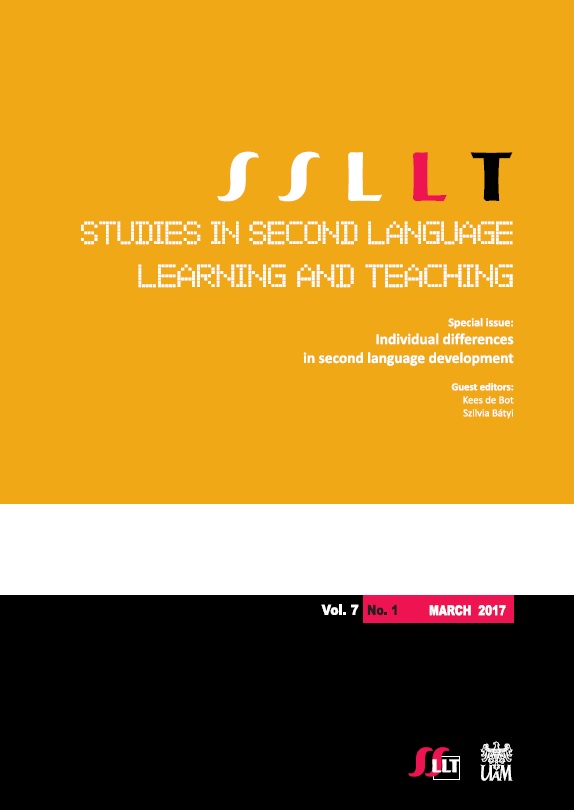Language aptitude: Desirable trait or acquirable attribute?
Language aptitude: Desirable trait or acquirable attribute?
Author(s): David SingletonSubject(s): Language and Literature Studies, Foreign languages learning
Published by: Wojskowe Biuro Historyczne im. gen. broni Kazimierza Sosnkowskiego
Keywords: aptitude; working memory; experience; language aptitude tests; instruction
Summary/Abstract: The traditional definition of language aptitude sees it as “an individual’s initial state of readiness and capacity for learning a foreign language, and probable facility in doing so given the presence of motivation and opportunity” (Carroll,1981, p. 86). This conception portrays language aptitude as a trait, in the sense of exhibiting stability over long periods of time and being immune to training. The trait view of language aptitude tends towards the notion that it is innate, and indeed language aptitude has often been associated with the popular notion of a “gift for languages” (cf. Rosenthal, 1996, p. 59). The view of language aptitude as an innate trait has, however, long been questioned(see e.g., Neufeld, 1978). Recently, this questioning has intensified (see Singleton,2014), especially since the development of a widespread consensus that working memory needs to be recognized as an important component of language aptitude (see Wen, 2016). Working memory was also once thought of as a trait, but is now recognized as susceptible to the influence of experience and instruction (see e.g., Williams, 2012). The present paper will track the trajectory of the above theoretical discussion and will explore the implications of the stage it has now reached.
Journal: Studies in Second Language Learning and Teaching
- Issue Year: VII/2017
- Issue No: 1
- Page Range: 89-103
- Page Count: 15
- Language: English

